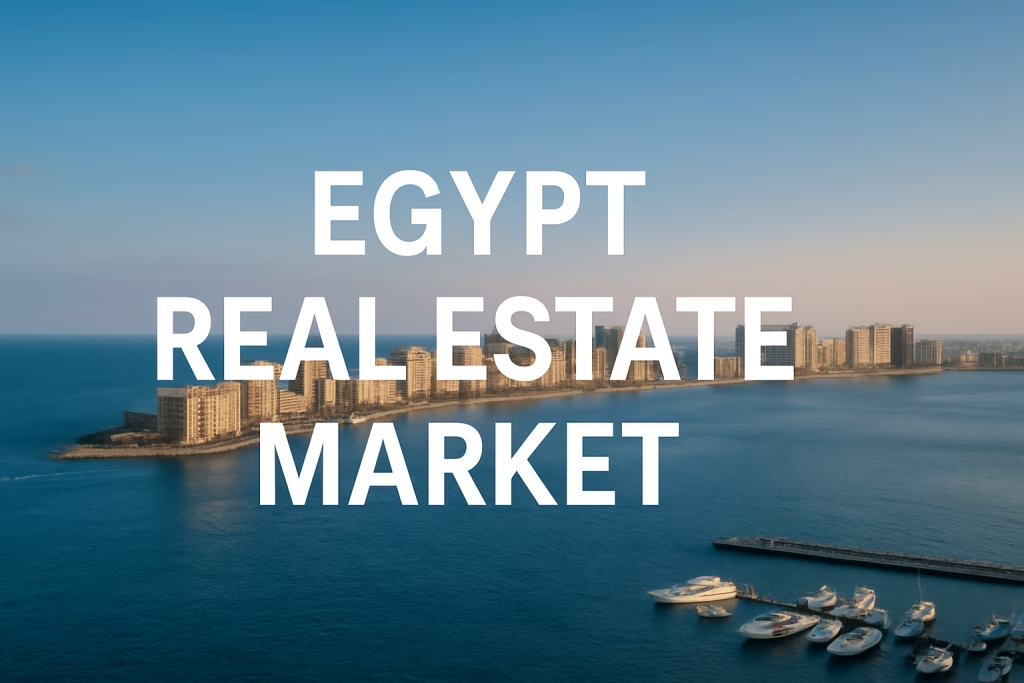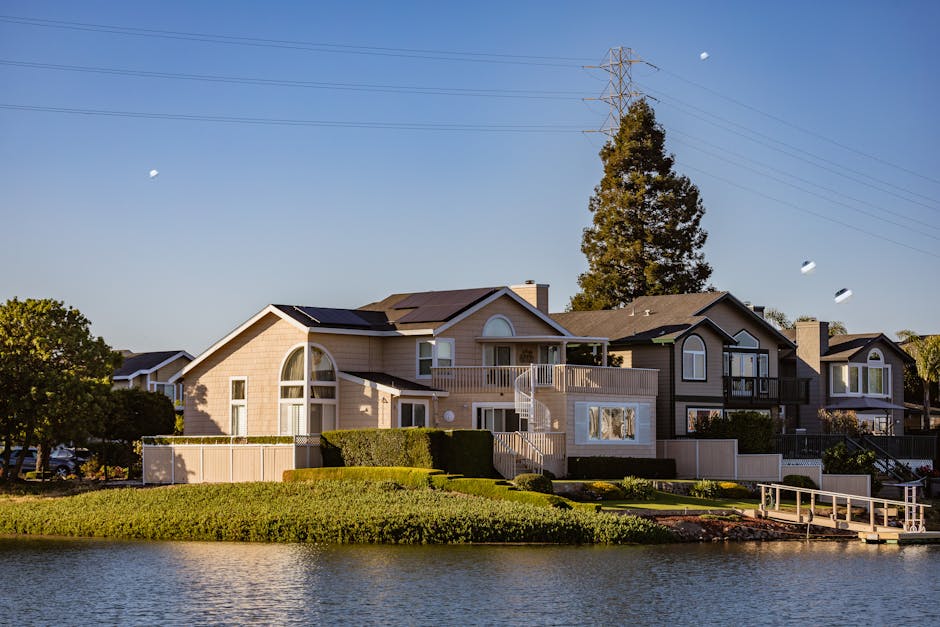Table of Contents
Overview of Egypt Real Estate Market
Factors Driving Coastal Investments
Popular Coastal Cities for Investment
High-Yield Investment Opportunities
Legal Considerations for Property Investors
Risks and Challenges
Tips for Successful Property Investment
Case Studies of Successful Investments
Future Outlook for Egypt Coastal Property Market
Frequently Asked Questions
Overview of Egypt’s Property Market
Economic Overview
Egypt’s economy has shown resilience in recent years, with economic reforms attracting foreign investment. The GDP growth rate, projected at 5% for 2025, indicates a positive trend for investors. Key factors contributing to this growth include:
- Tourism Recovery: A significant boost from the revival of tourism and local demand, especially in coastal areas.
- Infrastructure Development: Continued investment in smart city amenities and the New Administrative Capital (NAC) enhances overall property values.
Egypt real estate market opportunities along the Mediterranean and Red Sea coasts have never been more compelling. Imagine waking up to turquoise waters outside your balcony, while your investment works for you—delivering steady rental yields and capital growth that grow year after year. By tapping into powerful neuromarketing techniques, leveraging local insights, and riding the wave of smart city innovations, you’ll discover how early adopters are turning coastal properties into profit powerhouses. Join us on a journey through Egypt’s most lucrative coastal cities, where every shoreline tells a story of wealth made and wealth waiting.

Real Estate Market Trends
The real estate market in Egypt is evolving, especially towards coastal cities. Trends to watch include:
- Increasing Coastal City Yields: Properties in places like Alexandria and Hurghada.
- Rural-to-Urban Migration: This trend is fueling demand for residential developments.
Consequently, managing rental trends has become pivotal for investors seeking high returns.
Factors Driving Investment in Coastal Cities
Tourism Growth
The growth of tourism in Egypt’s coastal cities has been a game-changer for property investments. With stunning beaches and cultural landmarks, locations like Hurghada and Alexandria have become hotspots for both domestic and international travelers.
- Increased Tourist Arrivals: In recent years, tourism has surged, boosting local economies.
- Investment in Eco-tourism Initiatives: Development projects are enhancing the appeal of coastal areas, drawing more visitors.

Infrastructure Development
Infrastructure plays a crucial role in attracting investors. Significant improvements, like the expansion of road networks and the introduction of modern amenities, are transforming these cities:
- Smart City Initiatives: These enhance livability and attract foreign buyers.
- New Hotels and Resorts: With ongoing projects along the Red Sea, there’s an increase in tourism and residential opportunities.
Such developments are paving the way for a promising future in Egypt’s property market.
Popular Coastal Cities for Property Investment
Alexandria
Alexandria, known for its rich history and beautiful coastline, offers a blend of cultural and residential opportunities. With property prices being relatively stable, it’s an attractive option for both foreign buyers and local investors:
- Key Attractions: The Bibliotheca Alexandrina and stunning Mediterranean beaches draw tourists year-round.
- Growth Potential: Eco-tourism initiatives are making the city more appealing for long-term investment.

Ain Sokhna
Ain Sokhna is rapidly becoming popular for its luxurious resorts and proximity to Cairo. It’s a perfect escape for city dwellers:
- Investment Opportunities: New residential developments are offering affordable prices compared to coastal competitors.
- Strong Rental Market: With its thriving tourist sector, rental yields are on the rise.
Hurghada
Lastly, Hurghada has been a favorite for beach lovers and investors alike:
- Vibrant Tourism Scene: Renowned for its diving spots and water sports, Hurghada attracts thousands of tourists.
- High Capital Appreciation: Property values have significantly increased, making it a hot spot for savvy investors.
These cities present unique opportunities in Egypt’s thriving property market, making them ideal for potential investors.
High-Yield Property Investment Opportunities
Rental Yields in Coastal Cities
Investing in coastal cities like Hurghada and Ain Sokhna presents lucrative rental yield potential. For example, properties in Hurghada often yield between 8-12%, largely due to its year-round tourist influx.
- Short-Term Rentals: Airbnb and vacation rentals are increasingly popular, leading to higher occupancy rates.
- Long-Term Rentals: With many expatriates looking for long-term stays, these properties are consistently in demand.
Capital Appreciation Potential
The capital appreciation in Egyptian coastal cities has been particularly promising:
- Rapid Development: New infrastructure and smart city projects are driving property values up.
- Market Stability: Despite global challenges, the Egypt property market shows resilience, making investments less risky.
With these opportunities, investors have great prospects for significant returns in the years to come.

Legal Considerations for Property Investors in Egypt
Foreign Ownership Regulations
Investors looking to own property in Egypt should be aware of specific foreign ownership regulations. Generally, foreigners can own up to 100% of residential property in coastal cities, especially in popular areas like Ain Sokhna and Hurghada. New Urban Communities Authority
- Property Ownership in Free Zones: There are designated areas where foreign ownership is fully permitted.
- Documentation Required: Buyers must secure a title deed and comply with various regulations, ensuring a smooth purchasing process.
Property Taxes in Coastal Cities
When investing in coastal real estate, understanding property taxes is crucial:
- Tax Rates: Generally, annual property taxes in Egypt are relatively low, typically around 10% for rental income.
- Exemptions and Deductions: Some properties may qualify for tax breaks, particularly for eco-tourism developments.
Familiarizing oneself with these legalities can help investors navigate the Egyptian property market more effectively.

Risks and Challenges in Egypt’s Property Market
Currency Fluctuations
Investors in Egypt’s property market must navigate the complexities of currency fluctuations. The Egyptian pound can be volatile, impacting property values and rental returns for foreign buyers.
- Foreign Exchange Risks: Investors may face challenges when converting profits back to their home currency.
- Strategic Hedging: Engaging in currency hedging strategies can mitigate some risks associated with fluctuation.
Political Stability Concerns
Political stability is another critical factor affecting the property market in Egypt. While recent years have shown improvements, uncertainties can still arise.
- Regulatory Changes: Investors must stay informed about potential policy shifts that could impact ownership rights or taxation.
- Market Sentiment: Political unrest can influence buyer sentiment, posing risks to property value and demand.
Understanding these risks is essential for making informed investment decisions in Egypt’s property market.
Tips for Successful Property Investment in Coastal Cities
Market Research and Due Diligence
Navigating the Egyptian property market requires thorough market research and due diligence. Prospective investors should:
- Analyze Local Trends: Pay attention to coastal city growth patterns, rental trends, and upcoming infrastructure projects.
- Inspect Properties: Conduct site visits and property inspections to get a true sense of value.
Investors can also benefit from gathering insights from locals to understand the community dynamics better.
Working with Local Real Estate Professionals
Building relationships with local real estate professionals can significantly enhance investment success:
- Expert Guidance: Local agents have intimate knowledge of the market and can identify hidden gems.
- Negotiation Skills: They can assist with negotiations, ensuring fair pricing and smoother transactions.
Utilizing these strategies can empower investors to make informed and confident decisions in Egypt’s coastal property market.
Case Studies of Successful Property Investments
Case Study 1: Profitable Investment in Alexandria
A real estate investor named Sarah ventured into Alexandria’s property market, drawn by its rich history and potential growth. She purchased a modest apartment near the waterfront, initially paying $150,000.
- Key Actions: Sarah focused on renovations and enhancing the property’s appeal.
- Results: Within two years, she saw the property value appreciate by 30%. Moreover, the unit generated a consistent rental yield of 10%, attracting both tourists and long-term tenants.
Case Study 2: Successful Rental Property in Hurghada
John, an expatriate, invested in a beachfront condo in Hurghada for $120,000.
- Strategy: Leveraging local property management services, he opened the condo for short-term rentals on platforms like Airbnb.
- Outcome: The property achieved an average occupancy rate of 80%, yielding annual rental income that outperformed his expectations by 15%.
These case studies illustrate the potential rewards of investing in Egypt’s coastal cities when strategic decisions are made.
Future Outlook for Egypt’s Coastal Property Market
Growth Prospects
The future of Egypt’s coastal property market looks promising, fueled by a combination of increased tourism and ongoing infrastructure projects. With the Egyptian government prioritizing the development of coastal cities, investors can expect:
- Sustained Demand: The rise in both local and foreign tourism will drive demand for residential and vacation properties.
- Economic Stability: As Egypt stabilizes economically, property values in coastal regions are likely to continue appreciating.
Emerging Trends in Coastal City Development
Several exciting trends are beginning to shape the coastal property landscape:
- Eco-tourism Initiatives: New developments are focusing on sustainability, attracting environmentally-conscious buyers.
- Smart City Features: The integration of technology in properties is enhancing living standards while appealing to younger buyers.
Embracing these trends can position investors to capitalize on the evolving coastal property market effectively.
Book Your call with ERA’s Expert Now!
Q&A
Q: What is the current state of the real estate market in Egypt?
The market is growing steadily, with GDP projected at 5% in 2025, spurring demand—especially in coastal hot spots like Alexandria and Hurghada.
Q: What are the most popular areas to buy property in Egypt?
Beyond Cairo and New Administrative Capital, coastal cities such as Alexandria, Ain Sokhna, and Hurghada top the list.
Q: Can foreigners buy property in Egypt?
Yes—foreigners may own up to 100% of residential units in designated coastal and free-zone areas, with required permits from local authorities.
Q: What are the requirements for non-Egyptians to purchase property?
Non-residents need security clearance from the Ministry of Interior and may buy up to two properties for personal or investment use.
Q: What is the process for buying a house as a foreign investor?
Identify a property, negotiate terms, sign a contract, pay a deposit (~10%), secure the title deed, then complete registration in the land registry.
Q: What taxes and fees apply to property purchases?
Stamp duty is 2.5% of the purchase price, plus a 2% tax on assessed property value; certain eco-tourism and smart projects may qualify for deductions.
Q: How do I find a reputable real estate agent in Egypt?
Seek licensed agents with strong local track records—ask for referrals, check online reviews, and verify credentials through the Egyptian Real Estate Association.
Q: What is the rental market like in Egyptian coastal cities?
Rental yields range from 8–12% in Hurghada and Ain Sokhna thanks to year-round tourism and rising expat demand.


